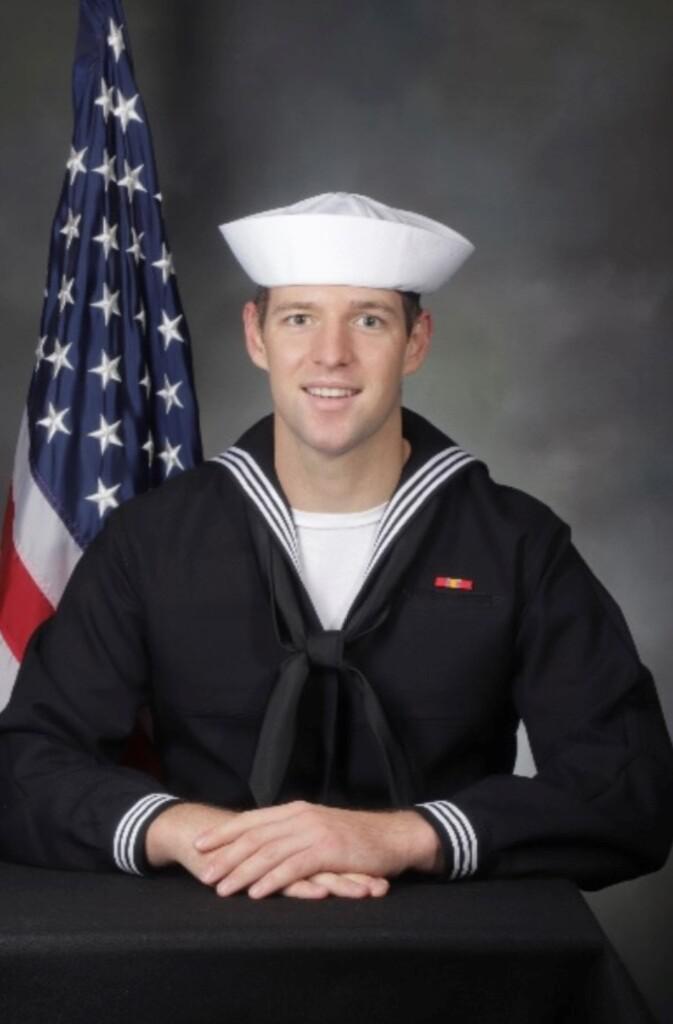The death of a Navy SEAL candidate in February is raising questions about the safety of SEAL basic training. Kyle Mullen died of pneumonia just after so-called Hell Week. His family recently released an autopsy that concluded he had received inadequate medical care even though he was seriously ill.
His mother, Regina Mullen, said she trusted the SEALs with her son’s life and they failed him.
“They're torturing our men,” she said. “You can't do that to prisoners of war — there's war crimes — and they're doing it to our own athletic young bright men that are willing to give up their lives to serve the country. They're torturing them. It's not training.”
Mullen died February 4, hours after finishing Hell Week. Hell Week, a test of endurance, is part of the notoriously difficult SEAL basic training on Coronado, also known as Basic Underwater Demolition/SEAL (BUD/S).
Regina Mullen was recently mailed a copy of the May 2 autopsy from the Armed Forces Medical Examiner System. It confirms her son was left in the barracks without medical personnel in the hours after finishing Hell Week on Coronado. Kyle Mullen was in a wheelchair most of the time, unable to stand or walk on his own, and being tended to by other candidates who also showed signs of being sick. Later in the afternoon, Mullen was found unresponsive on the barracks floor by Navy medical personnel after another candidate called for medical help for himself when he was having trouble breathing.
“Severe pneumonia — there's no way a 24-year-old healthy boy should die of severe pneumonia, and that's a disgrace that he was not treated for days. They knew he had it,” Regina Mullen said.
Her son had played football at Yale and Monmouth University prior to SEAL basic training.
Kyle Mullen was found with a 36-ounce bottle filled with his own blood and mucus. The autopsy revealed that Mullen died of streptococcus pyogenes — a type of pneumonia often associated with military bases. Regina Mullen is a registered nurse. She said her son was struggling to breathe when he called her a few hours before he died, just after he finished Hell Week.
“You all knew that my son was compromised,” she said. “The medical team, the instructors, the lieutenant commander had you all standing around while you see the guy spitting blood. You sent them to the barracks, sent the medical team home, and you let them die.”
Hell Week is virtually unchanged since at least the 1970s. For nearly a week, candidates are submerged in the Pacific Ocean — forced to continually swim or march with boats on their backs. Candidates get little sleep. Some SEALs say that, by the end, they were hallucinating.

Regina Mullen said her son was told he could get medical help if he rang a bell three times. But that was also a signal that he wanted to give up.
“It's where you have to ring a bell and then they'll give you medical, and ringing the bell is quitting,” she said.
“That is a game that the instructors play,” said Robert Adams, a medical doctor and former SEAL. “That's absolutely true that they say stuff like that. It is absolutely untrue that they meant it.”
Adams wrote “Six Days of Impossible: Navy SEAL Hell Week — A Doctor Looks Back” about his experience. He said medical teams were there to monitor candidates, at least during the exercise.
“Over the years, I followed SEAL training as a physician ... and saw numerous reports of pneumonia. Usually, it’s somebody that's pulled out of Hell Week and told 'you can't go on,' you know, and they're screaming ’please don't pull me,’” he said.
“Over the years, I followed SEAL training as a physician ... and saw numerous reports of pneumonia. Usually it’s somebody that's pulled out of Hell Week and told 'you can't go on,' you know, and they're screaming ’please don't pull me.’”Robert Adams, author of “Six Days of Impossible: Navy SEAL Hell Week — A Doctor Looks Back”
Many candidates opt not to continue. In Mullen’s class, more than 200 candidates started BUD/S and, by the end, fewer than 20 made it through. If they don’t continue, candidates either leave or they can be “rolled back” to try again with a later class. Mullen had already been rolled back once.
Regina Mullen said SEALs told her that instructors liked Kyle and pushed him to finish the last couple of days. But, she said, candidates shouldn't have to decide if they can do it.
“They probably don't even know what day of the week it is,” she said. “They’re probably having a delirious altered mental status. How can you expect them to make that decision, knowing what their medical condition is?”
The U.S. military often talks about training like you fight — Hell Week is more of a test of physical and psychological endurance. Instructors try to push candidates past what they think their limits are, said Jeff Butler, a former SEAL and CIA agent.
“Really, the goal of it is to weed out people that aren't going to just have the mental fortitude to not quit when it gets absolutely terrible,” he said. “I mean, guys that will go until they have literally life-threatening pneumonia.”
Butler’s father was also a SEAL. Though warfare has changed dramatically over the decades, Hell Week has not.
“It’s a ritual to see who gets to be part of their organization," Butler said. "They consider themselves gatekeepers of who is good enough to be in the community. That’s how instructors often saw themselves."






